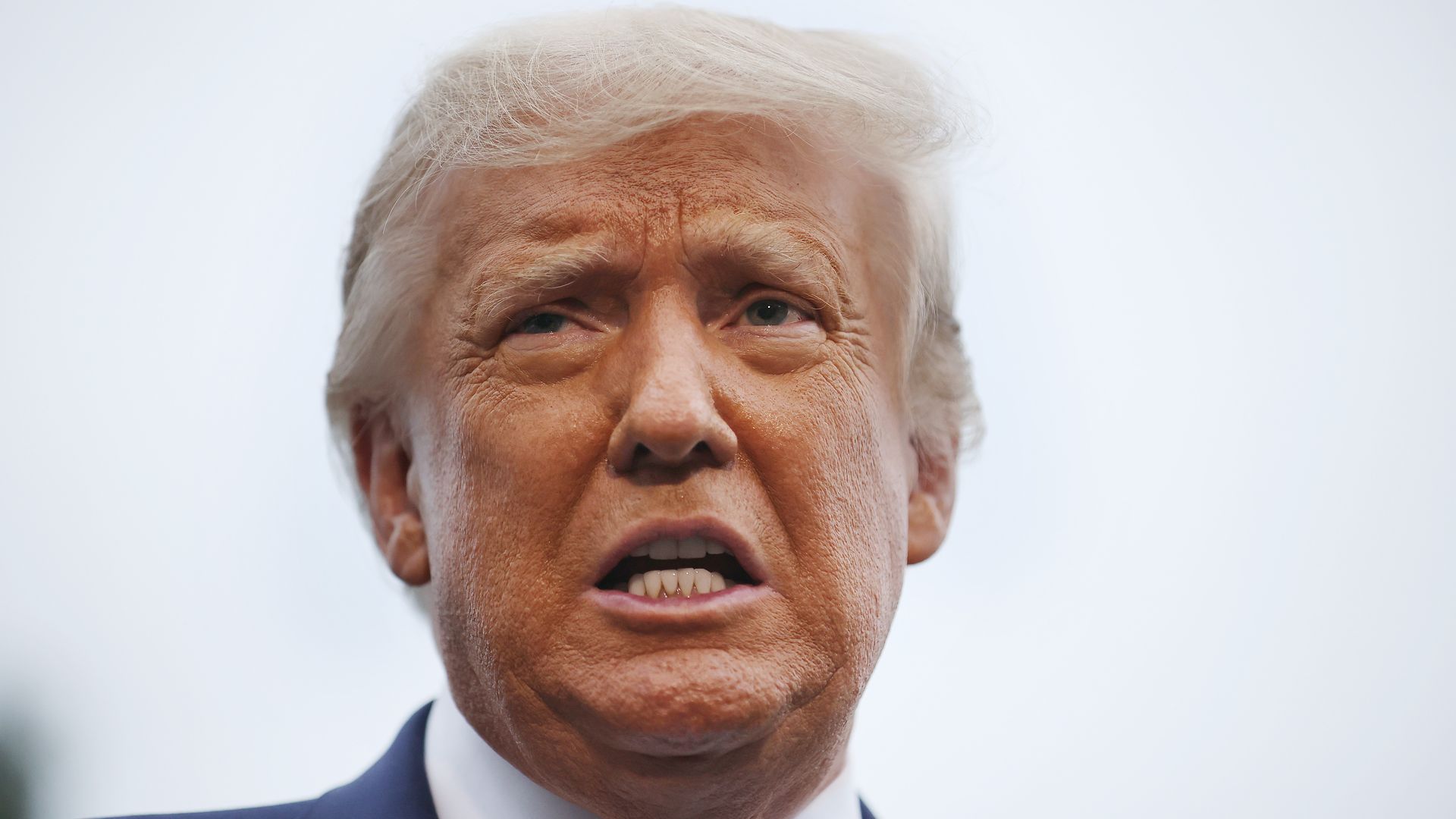
Photo: Chip Somodevilla/Getty Images
The New York Times has obtained more than two decades' worth of tax-return data from Trump and the companies that make up his business, writing in an explosive report that the documents "tell a story fundamentally different from the one [the president] has sold to the American public."
Why it matters: The Times' bombshell report, published less than seven weeks before the presidential election, lays bare much of the financial information Trump has long sought to keep secret — including allegations that he paid $750 in federal income taxes in 2016 and 2017, and has over $300 million in personal debt obligations coming due in the next four years.
Key findings:
- Prior to being elected, Trump "paid no income taxes at all in 10 of the previous 15 years — largely because he reported losing much more money than he made," the Times wrote.
- According to the Times, Trump "has reduced his tax bill with questionable measures, including a $72.9 million tax refund," which is now the subject of an IRS audit. Trump has claimed for years that his taxes are under "routine audit" and repeated that defense at a press briefing on Sunday.
- Trump made $427.4 million from his "The Apprentice" show and the licensing and endorsements deals associated with his celebrity brand, the Times found.
- Much of that money, which is now drying up, was invested in "a collection of businesses, mostly golf courses, that in the years since have steadily devoured cash — much as the money he secretly received from his father financed a spree of quixotic overspending that led to his collapse in the early 1990s," the Times writes.
- Many of those businesses, the Times found, reported losing large sums of money — "losses that have helped him to lower his taxes." But the Times notes that even with those losses, he still lived a lavish lifestyle.
- Between 2010 and 2018, Trump wrote off about $26 million in mysterious "consulting fees," helping to reduce his family's tax bill. At least some of those fees appear to have been paid to his daughter Ivanka Trump, despite her being a top Trump Organization executive, according to the Times.
What they're saying: Asked about the Times report on Sunday, the president called it "fake news" and insisted that he pays "a lot" in taxes. He again refused to release his own tax returns because they are "under audit" and the IRS treats him "very badly."
- Alan Garten, a lawyer for the Trump Organization, told the Times that “most, if not all, of the facts appear to be inaccurate” and requested the documents the newspaper had obtained.
- The Times said that after it declined to provide the documents to protect its sources, Garten took direct issue with only the amount of taxes Trump paid. "Over the past decade, President Trump has paid tens of millions of dollars in personal taxes to the federal government, including paying millions in personal taxes since announcing his candidacy in 2015,” Mr. Garten said in a statement.
Worth noting: The Times writes that with the term "personal taxes," Garten "appears to be conflating income taxes with other federal taxes Mr. Trump has paid — Social Security, Medicare and taxes for his household employees. Mr. Garten also asserted that some of what the president owed was 'paid with tax credits,' a misleading characterization of credits, which reduce a business owner’s income-tax bill as a reward for various activities, like historic preservation."
New York Times executive editor Dean Baquet wrote in an editor's note accompanying the report:
A team of New York Times reporters has pored over this information to assemble the most comprehensive picture of the president’s finances and business dealings to date, and we will continue our reporting and publish additional articles about our findings in the weeks ahead. We are not making the records themselves public because we do not want to jeopardize our sources, who have taken enormous personal risks to help inform the public.
We are publishing this report because we believe citizens should understand as much as possible about their leaders and representatives — their priorities, their experiences and also their finances. Every president since the mid-1970s has made his tax information public. The tradition ensures that an official with the power to shake markets and change policy does not seek to benefit financially from his actions.
What to watch: Additional stories on the documents obtained by the Times are expected in the coming weeks, according to reporter Suzanne Craig.
